Ghana
Ghana, the world's second-largest cocoa producer, is facing increasing risks to its bean crop from illegal miners and smugglers, according to industry officials, farmers and environmentalists.
At a time when Ghana is going through one of the worst economic crises in its history, with inflation reaching 26.4% in November, illegal mining, known locally as "galamsey", is posing a major problem for cocoa cultivation, one of the pillars of the national economy alongside gold and oil.
"Over the past five years, we have seen serious destruction on cocoa farms due to the activities of illegal miners," Michael Kwarteng, director of anti-illegal mining activities at the Ghana Cocoa Board (COCOBOD), told AFP.
"This has reached an alarming proportion", he insisted.
Faced with the economic crisis, a growing number of farmers are selling their land to illegal miners, like Rita Abena Koranteng, 45, a cocoa farmer in Suhum, in the eastern region of Ghana, who has sold two of her plots to her uncle so that he can mine the subsoil.
"Every month, he pays me 500 dollars and I'm happy, because I could never have earned so much money from my cocoa-growing business", she explains.
"I know that some of my fellow cocoa farmers in the western region and other places have switched to planting rubber trees because they don't earn enough from cocoa," she maintains.
The government, which buys the country's entire production before selling it on to private companies, has agreed a 63% increase in the price paid to producers this year, but this is not enough to dissuade them from selling their land for undeclared mining. At present, it buys a tonne of cocoa from producers for $1,822 (€1,670).
"So far, the land lost to illegal mining represents 2% of the total area under cocoa cultivation in Ghana. We can no longer allow this to continue", worries Michael Kwarteng.
According to COCOBOD, Ghana is set to harvest 1 million tonnes of cocoa between 2020 and 2021. But this figure has fallen to 750,000 tonnes for the 2022-2023 harvest, and its forecast for 2023-2024 is between 650,000 and 700,000 tonnes due to the impact of illicit activities.
- Time bomb
In addition to the loss of agricultural land, mining activities also contribute to the pollution of rivers and water tables through the use of chemicals for extraction.
Obed Owusu-Addai, Campaigner at EcoCare Ghana, an organisation that campaigns for the welfare of farmers, believes that the government still needs to improve prices and living standards for farmers.
"We are sitting on a time bomb as a country," he warns.
"If this problem is not solved immediately, we will end up losing most of our land to illegal mining," he adds.
Benjamin Tei Larweh, Deputy Director of Communications at COCOBOD, says the organisation has started offering cash rewards to people who report illegal mining on cocoa land, but also bean smuggling, another problem for the sector.
"In 2022, Ghana lost around 150,000 metric tonnes of cocoa beans to smuggling with our neighbours, which represents a colossal revenue of 600 million dollars that has gone down the drain", he explains.
Another challenge for the industry is climate change, which is also having a major impact on cocoa growing.
Six major regions in Ghana grow the precious bean: East, Ashanti, Brong Ahafo, Central, Volta and West.
However, due to fluctuating rainfall and declining soil fertility, production has shifted westwards. The western region is now Ghana's main cocoa producer, accounting for 43% of the total.



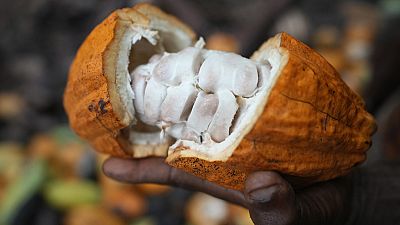

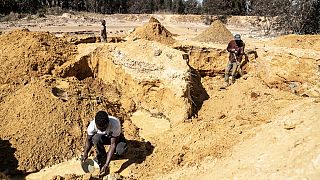
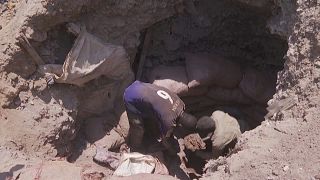
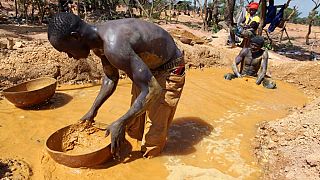
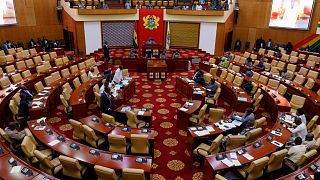





01:30
Top South African official accuses police minister of colluding with crime syndicates
Go to video
Museveni to run again as Uganda's ruling party picks him for 2026 election
Go to video
US deports eight men to South Sudan after legal battle
Go to video
Tanzania’s Prime Minister steps down ahead of elections
01:00
Pix of the Day: July 3, 2025
Go to video
’Black Empowerment’ law stalls Elon Musk's $113 million investment in SA